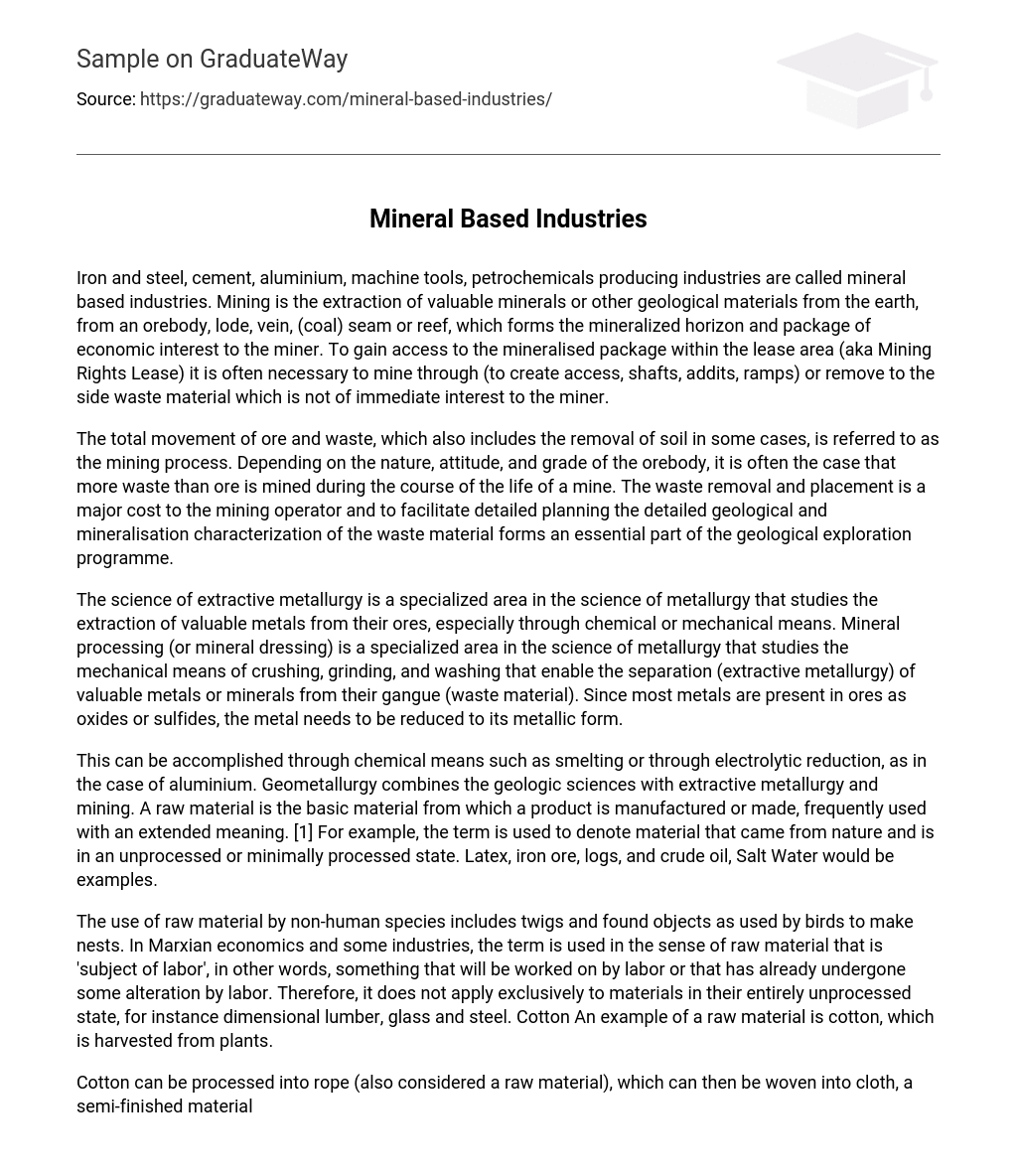Iron and steel, cement, aluminium, machine tools, petrochemicals producing industries are called mineral based industries. Mining is the extraction of valuable minerals or other geological materials from the earth, from an orebody, lode, vein, (coal) seam or reef, which forms the mineralized horizon and package of economic interest to the miner. To gain access to the mineralised package within the lease area (aka Mining Rights Lease) it is often necessary to mine through (to create access, shafts, addits, ramps) or remove to the side waste material which is not of immediate interest to the miner.
The total movement of ore and waste, which also includes the removal of soil in some cases, is referred to as the mining process. Depending on the nature, attitude, and grade of the orebody, it is often the case that more waste than ore is mined during the course of the life of a mine. The waste removal and placement is a major cost to the mining operator and to facilitate detailed planning the detailed geological and mineralisation characterization of the waste material forms an essential part of the geological exploration programme.
The science of extractive metallurgy is a specialized area in the science of metallurgy that studies the extraction of valuable metals from their ores, especially through chemical or mechanical means. Mineral processing (or mineral dressing) is a specialized area in the science of metallurgy that studies the mechanical means of crushing, grinding, and washing that enable the separation (extractive metallurgy) of valuable metals or minerals from their gangue (waste material). Since most metals are present in ores as oxides or sulfides, the metal needs to be reduced to its metallic form.
This can be accomplished through chemical means such as smelting or through electrolytic reduction, as in the case of aluminium. Geometallurgy combines the geologic sciences with extractive metallurgy and mining. A raw material is the basic material from which a product is manufactured or made, frequently used with an extended meaning. [1] For example, the term is used to denote material that came from nature and is in an unprocessed or minimally processed state. Latex, iron ore, logs, and crude oil, Salt Water would be examples.
The use of raw material by non-human species includes twigs and found objects as used by birds to make nests. In Marxian economics and some industries, the term is used in the sense of raw material that is ‘subject of labor’, in other words, something that will be worked on by labor or that has already undergone some alteration by labor. Therefore, it does not apply exclusively to materials in their entirely unprocessed state, for instance dimensional lumber, glass and steel. Cotton An example of a raw material is cotton, which is harvested from plants.
Cotton can be processed into rope (also considered a raw material), which can then be woven into cloth, a semi-finished material. Cutting and sewing the fabric turns it into a garment, which is a finished product. Steel Steelmaking is another example – raw materials in the form of ore are mined, refined and processed into steel, a semi-finished material. Steel is then used as an input in many other industries to make finished products. Some materials rust. Jute Jute is a natural fibre produced from plants in the genus Corchorus. It is used for making ropes, mats and much more.





